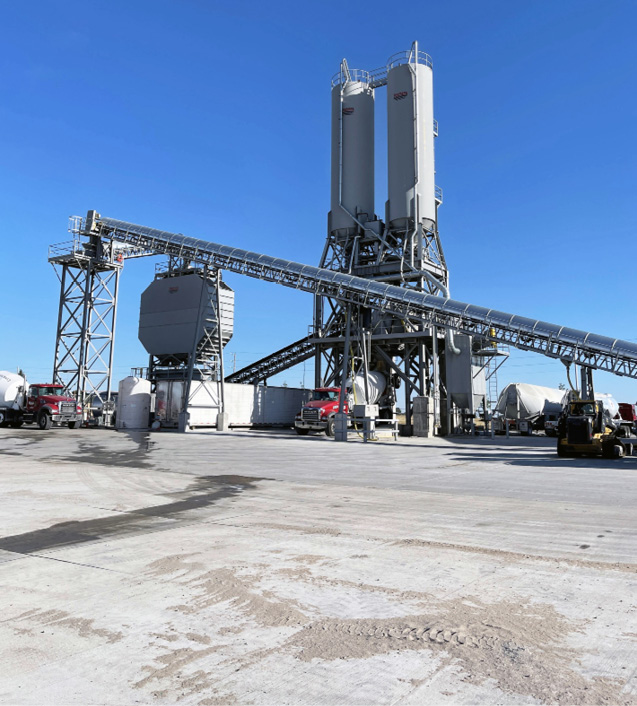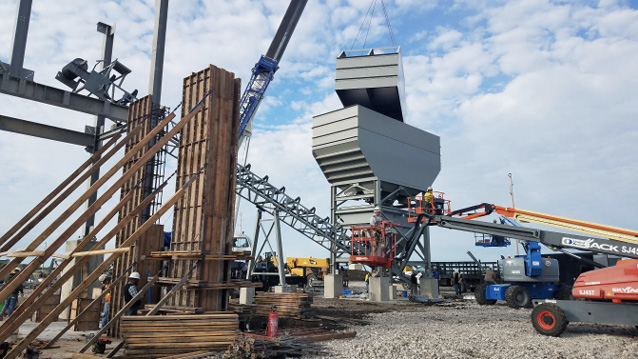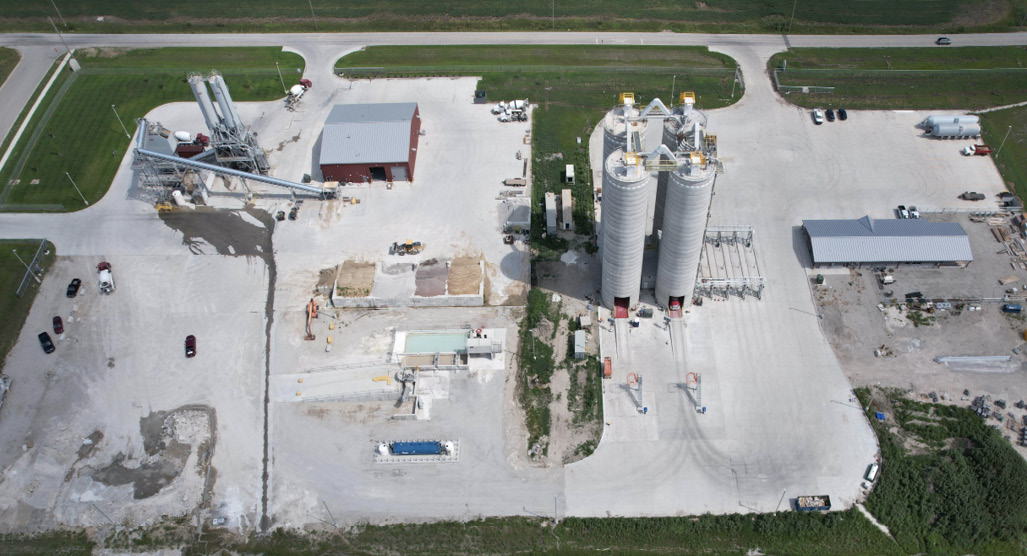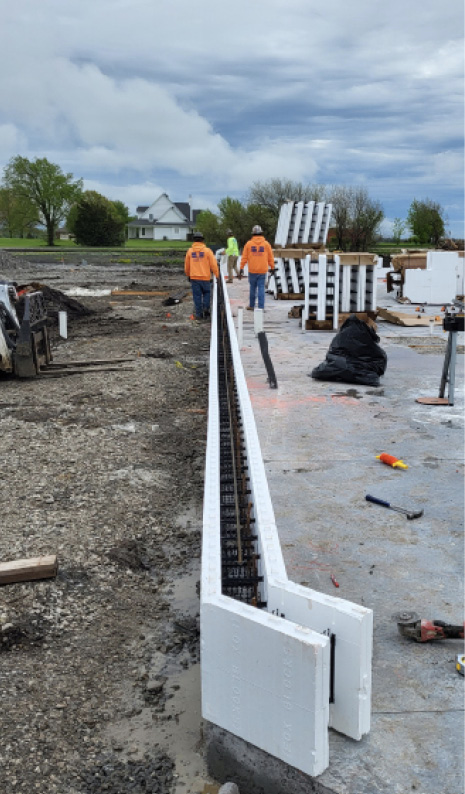

In the early stages of their newest Kansas ready mixed plant, officials of Monarch Cement Co. and subsidiary Concrete Materials Inc. didn’t anticipate the need for a backup location or market. Permitting difficulties, coupled with opportunities for improved logistics, prompted a tabling of their initial target in favor of a site along a growing Interstate 35 and U.S. 169 corridor in the Kansas City suburb of Spring Hill. Results confirm the property pivot as timely, strategic and, against the original plan, more profitable.
Monarch Cement’s new 15-acre Spring Hill parcel suits a 200- to 220-yd./hour central mixed plant in a once-small town whose population is closing in on 10,000—doubling in under two decades. The new plant is a satellite to Concrete Materials’ headquarters in Merriam, a closer in suburb. The two sites and a 30-plus mixer fleet equip the producer to serve residential and commercial projects on the Kansas side of Kansas City, primarily points south and west.
The Spring Hill acreage and I-35 proximity address two other management priorities tied to recent challenges involving rail service for Monarch Cement’s 1.4 million ton/year flagship mill in Humboldt, an hour south of Kansas City, plus congestion hampering transportation subsidiary Beaver Lake Concrete’s bulk tanker fleet. Construction of a 10,000-ton terminal at Spring Hill stood to ease the impacts of diminished rail service reliability on Humboldt cement storage and dispatching. In addition to a four-silo terminal, equipped for automated truck loadout, the parcel also offered ample space for a new Beaver Lake Concrete trucking terminal, augmenting the fleet’s southwest Missouri and northwest Arkansas facilities.
The Spring Hill terminal and trucking investments dovetail construction of a 97,000-sq.-ft. material warehouse at Humboldt. In the face of rail service uncertainty, the company now has storage capacity and flexibility between headquarters, Spring Hill and northernmost subsidiary, Monarch Cement of Iowa Inc., operating a 65,000-ton Des Moines terminal.
“We spent a year looking for the right piece of property as an alternative to the original site, and had the batch plant and material handling equipment ready to install,” explains Monarch Cement President Kent Webber. “Once we obtained the Spring Hill property, work on the concrete plant started. Decisions on construction of an autonomous cement terminal and office and shop building followed. We also determined that the site would fit our fleet efficiency requirements for Beaver Lake Concrete.”
“Spring Hill officials were smart and professional,” he adds. “They spent time with us to see the vision for a fully paved ready mixed concrete, cement terminal, and bulk tanker fleet hub. Construction and environmental permits were issued on predictable schedules.”
HEARTLAND FIXTURE
With 115 years under its belt, Monarch Cement is an institution in a region where cement, aggregate and ready mixed concrete capacity since 2010 has changed hands at levels more typical of Florida and Texas. Through sound management, along with timely Humboldt and downstream investments, the producer has contributed to a strong construction materials business climate attractive to operators no less than CRH Plc (Ash Grove Cement), Eagle Materials/Great Plains Cement (legacy Lafarge North America operations) and Summit Materials (multiple concrete, aggregate, asphalt investments across Missouri and Kansas).
In a U.S. industry where foreign-based companies have long accounted for 80 percent or more of capacity, Monarch Cement is one of three single-plant producers under domestic owners. Amid a shifting competitor landscape, the mother ship is well positioned with 12 subsidiaries spanning Kansas and Missouri.
In the largest market, Kansas City, Concrete Materials’ Spring Hill and Merriam plants cover the perennially stable Johnson County, whose 2022 population of 620,000 reflects an average annual growth rate of 5,000 to 7,000 residents over a horizon pre-dating 2010. Beyond Kansas City, Monarch Cement subsidiaries operate 22 fixed plants in central-western Kansas and southwest Missouri markets along Interstates 44 and 70, U.S. 400 and S.R. 96. Four portable plants under those subsidiaries, plus eight leased ready mixed production sites in Kansas and Arkansas, round out the company’s concrete footprint.


